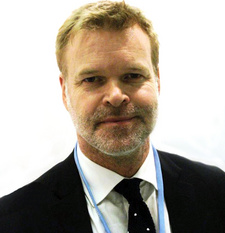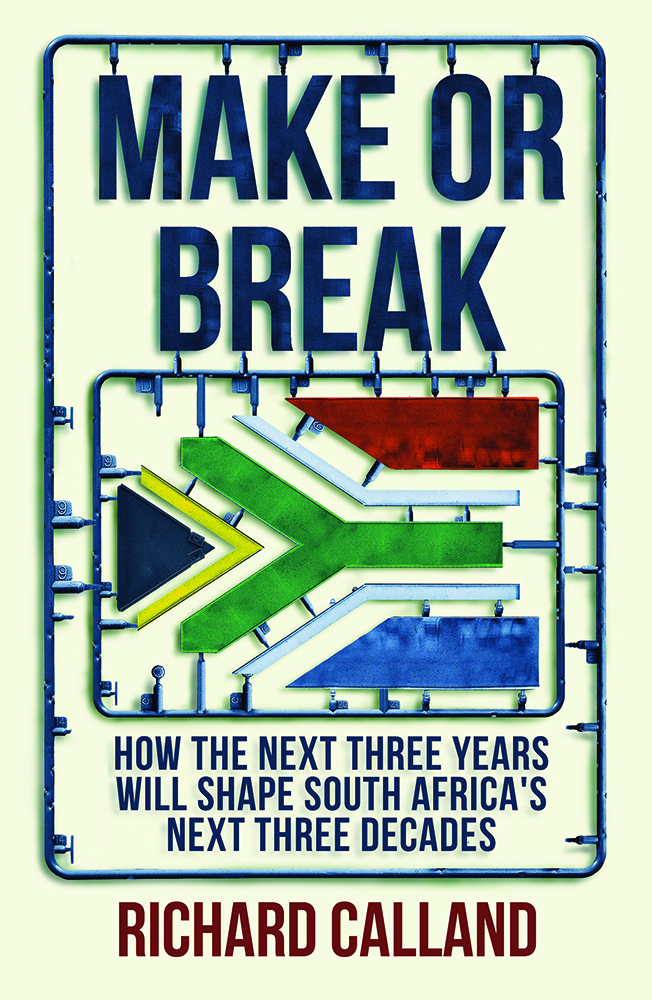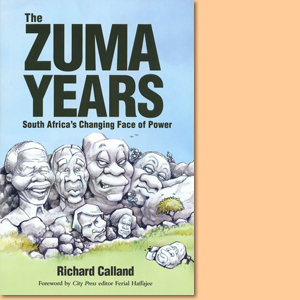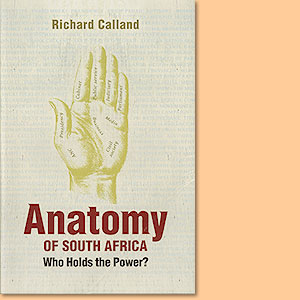Richard Calland

Professor Richard Calland ist ein britischer Rechtswissenschaftler, Journalist und politischer Analyst in Südafrika.
Professor Richard Calland ist ein britischer Rechtswissenschaftler, Journalist und politischer Analyst in Südafrika.
Richard Calland ist gebürtiger Brite. Nach dem Studium der Rechtswissenschaften an der University of Durham (BA), der London School of Economics sowie der University of Cape Town (LLM), war er seit 1987 als Rechtsanwalt in London tätig. 1994 wanderte der Jurist nach Südafrika aus um die Wahlkampagne des ANC zu unterstützen. 1995 wurde er als Mitglied des Political Information & Monitoring Service, der in politischen und gesellschaftlichen Fragen führenden Ideenschmiede des Institute for Democracy in Africa (Idasa) berufen und leitete diese bis 2003. Im Jahr 2000 gründete Richard Calland das Open Democracy Advice Centre (ODAC), dessen geschäftsführender Direktor er in Teilzeit ist. Das in Kapstadt ansässige Zentrum für Rechtsfragen unterstützt das Bürgerrecht auf staatliche Transparenz, berät Wistleblower und führt Musterprozesse zur Erzwingung des Zugangs zu staatlichen Geheimdossiers. Ferner Richard Calland Gründungsmitglied des Council for the Advancement of the South African Constitution (CASAC) und außerordentlicher Professor für Öffentliches- und Verfassungsrecht an der University of Cape Town, wo er zudem die Democratic Governance and Rights Unit leitet. Calland gilt als einer der versiertesten politschen Analysten in Südafrika. Er veröffentlicht regelmäßig Artikel, Kolumnen und Beiträge in südafrikanischen Zeitungen, im Rundfunk und Fernsehen. Richard Callands langjährige Erfahrung als Experte in Fragen demokratischer Staatsführung, wirtschaftlicher Ordnungspolitik, Menschenrechte und politischer Ethik Richard Calland sind sowohl in Südafrika als auch im Ausland gefragt, wo er im Auftrag des Carter Center in Bolivien, Jamaika, Nicaragua, Peru und Mali als Berater tätig war. Die kommisarische Leitung des 2007 ins Leben gerufene Economic Governance Programme, die Mitgliedschaft im Transparency Task Team des Institute for Public Dialogue an der Columbia University (USA) sowie die kürzlich im Rahmen der Climate Development Initiative Africa aufgenommene Definierung staatlicher Führungs- und Finanzierungsaufgaben hinsichtlich eines Klimawandels, gehören zu den weiteren Aufgaben des Rechtswissenschaftlers. Richard Calland hat zahlreiche gesellschaftskritische Bücher und politische Analysen geschrieben.
Literatur von Richard Calland:
- All Dressed up with no-where to go? The Rapid Transformation of the South African Parliamentary Committee System in The Changing role of parliamentary committees. (1997)
- Parliament and the socio-economic imperative – what is the role of the national legislature (with Mandy Taylor, Law, Democracy & Development, vol. 1, 1997)
- Tough on Crime and Strong on Human Rights: The Challenge for all of us (With Thabani Masuku. Law, Democracy & Development; UWC. 2001)
- State Ethics and Executive Accountability in Pulse: Passages in Democracy-Building: Assessing South Africa's Transition (1998)
- Democratic Government: South African Style, 1994-99 in Election (Edited by Andrew Reynolds, David Phillips/James Currey, 1999)
- The Democracy Index with Robert Mattes in In the Balance? Debating the State of Democracy in South Africa (Editors: Paul Graham & Alice Coetze, 2002)
- The First Five Years: A Review of South Africa's First Democratic Parliament (1999)
- Real Politics: The Wicked Issues with Sean Jacobs and Greg Power (2001)
- Thabo Mbeki's World: The Politics & Ideology of the South African President (Co-editor, 2002)
- The Right to Know, The Right to Live: Access to Information & Socio-economic Justice. (Co-editor, 2002)
- Whistleblowing Around the World: Law, Culture & Practice (Co-editor, 2004)
- Democracy in the Time of Mbeki: Idasa's Democracy Index (Co-editor, 2005)
- Prizing Open the Profit Making World in Florini A. (ed). The Right to Know: Transparency for an Open World (2007)
- Anatomy of South Africa: Who Holds the Power? (2006)
- The Zuma Years. South Africa's Changing Face of Power (2013)
Literaturauszüge:
Calland, Richard im Namibiana-Buchangebot
Make or Break: How the Next Three Years will Shape South Africa's Next Three Decades
The next three years will determine whether South Africa succeeds or fails in the long term. Make or Break predicts the country's next three decades.
The Zuma Years. South Africa's Changing Face of Power
The Zuma Years is a fly-on-the-wall, insider's approach to South Africa's changing face and the people who control the power.
Anatomy of South Africa. Who holds the power?
A vivid, up-to-date picture of how power works in the new South Africa and who really makes the decisions around here



